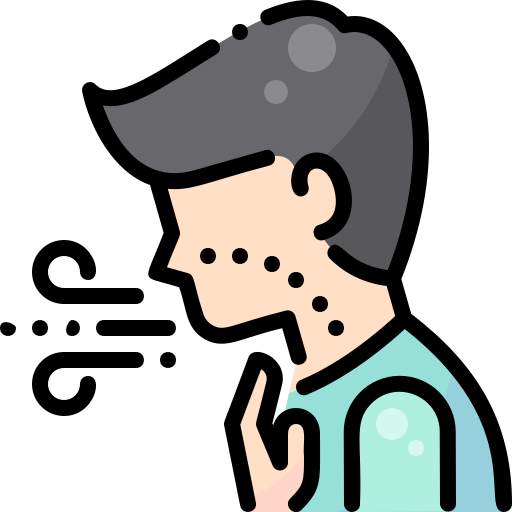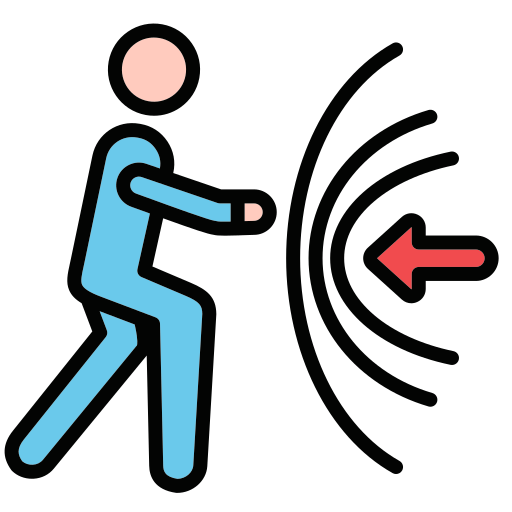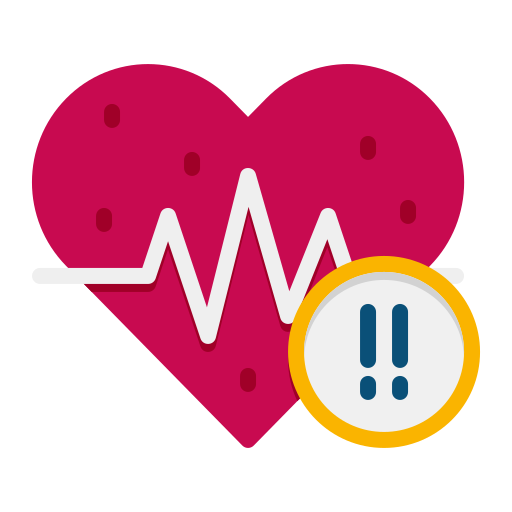"Mental health." You hear these two words a lot: at school, at work, maybe even at home. Chances are, you know a few strategies you can use when you're dealing with anxiety, panic attacks, or similar challenges.

But what if it's your parent experiencing a panic attack? How would you help them? Is it the same as supporting a friend, partner, or stranger? Being prepared for this situation can help both you and your parent.
What is a Panic Attack?
University Health Network defines a panic attack as "a sudden surge of overwhelming fear or anxiety that triggers severe physical and psychological reactions."
This anxiety might happen with or without a clear cause. It can be extremely uncomfortable to deal with.
Panic attacks can affect anyone, even people who seem to be "fine" or "healthy" on the surface. They can start at any age, without any previous history.
Symptoms of a panic attack:

Feels like a heart attack (chest pain)
Fast or uneven heart rate

Trouble breathing, choking
Sweating (hot/cold), shaking, trembling

Dizzy, nauseous, stomach pain
Lightheadedness

Losing control, or a fear of dying
Losing a sense of reality
How You Can Help
Consider this scenario...
Mia and her mom love going to concerts together. This weekend, their favorite artist is in town.
It's a Friday night, and when they get there, it's packed with people everywhere. Long lines, groups of people waiting outside, impatient drivers, police and security guards trying to organize fans...and they're walking right in the middle of it all!
 Photo by Jean Woloszczyk on Unsplash
Photo by Jean Woloszczyk on UnsplashMia feels her mom urgently grab for her hand, and her mom has a look of worry and fear in her eyes as she stops in place. Her mom is having a panic attack.
How can Mia help her mom?
1. Stay calm and attentive.
Stay by her mom's side.
Remain gentle and empathetic.
Ask what she need, communicating gently and in simple words.
2. Find a safe place.
Move her mom to somewhere quiet.
Let her know what she's doing to avoid any surprises.
3. Guide her mom's focus.
Slow down their breathing by breathing and counting with them.
Help them focus by using small, simple tasks (raising their arms, recalling memories, etc.).
4. Offer reassurance to manage overwhelming feelings.
Offer encouraging thoughts.
Remind her mom of the positives if she goes into a negative spiral: "You can get through this", "You're not in danger", or "You're doing a good job, I'm proud of you."
Quiz
What are some helpful things Mia can say to her mom? Select all that apply:
How is Helping a Parent Different?
Helping a parent with a panic attack can be different than helping a friend or stranger.
 Boundaries
Boundaries
Your family dynamics may make it hard to set boundaries with a parent. Be clear about the kind of support you can offer during the panic attack, and afterwards as well.
 History
History
Your shared family history can stir emotions that make it hard to stay calm and give unbiased opinions. If this happens, try to self-soothe alongside supporting your parent.
 Involvement
Involvement
Because this is your parent, you may feel more responsible for helping them through the panic attack or with aftercare tasks, such as therapy or medication. Call someone for support if you need it, and share the responsibility with others.
 Role-Reversal
Role-Reversal
As you support them, you or your parent may feel uncomfortable with the role reversal. Feelings like frustration, guilt, anger, or helplessness can surface for either of you. Gently addressing these feelings afterwards may help clear the air.
 Photo by Rémi Walle on Unsplash
Photo by Rémi Walle on UnsplashThese areas may affect your relationship with your parent. Understanding what's happening in your emotional world will help you plan for the role and the type of support you can offer. Remember to take care of yourself as you navigate this complex situation.
What if Your Parent Has Panic Attacks Often?
Your parent may have more than one panic attack. Some people may experience only a few panic attacks in a lifetime, while others may have several panic attacks per week.
If you're helping your parent with panic attacks often, aim to:
 Educate Yourself
Educate Yourself
You're already here learning, so that's great! Learn more about their triggers and their condition.
 Surround Yourself with Support
Surround Yourself with Support
This can be hard, and you may need support too. Having friends or family who you can lean on in difficult times will help you cope.
 Take Time for Yourself
Take Time for Yourself
Witnessing a panic attack can be emotionally draining and heartbreaking. You may need to put your needs first and take breaks. That's ok!
When To Seek Professional Help
 Panic attacks can feel like a heart attack. This can make it challenging to know when to seek medical help.
Panic attacks can feel like a heart attack. This can make it challenging to know when to seek medical help.
During a panic attack, if someone has chest pain, trouble breathing, or loses consciousness, seek emergency medical care right away.
 Your parent should call their healthcare provider if they have a panic attack and experience:
Your parent should call their healthcare provider if they have a panic attack and experience:
Chronic (long-lasting) anxiety that interferes with daily life
Difficulty concentrating
Extreme irritability
Fear of leaving your home (agoraphobia)
Panic attack symptoms that last longer than 15 minutes
Take Action
 Photo by Max van den Oetelaar on Unsplash
Photo by Max van den Oetelaar on UnsplashPrepare to help your parent get through their panic attack:
Here are a few more Bytes on supporting others with panic attacks:
Your feedback matters to us.
This Byte helped me better understand the topic.
